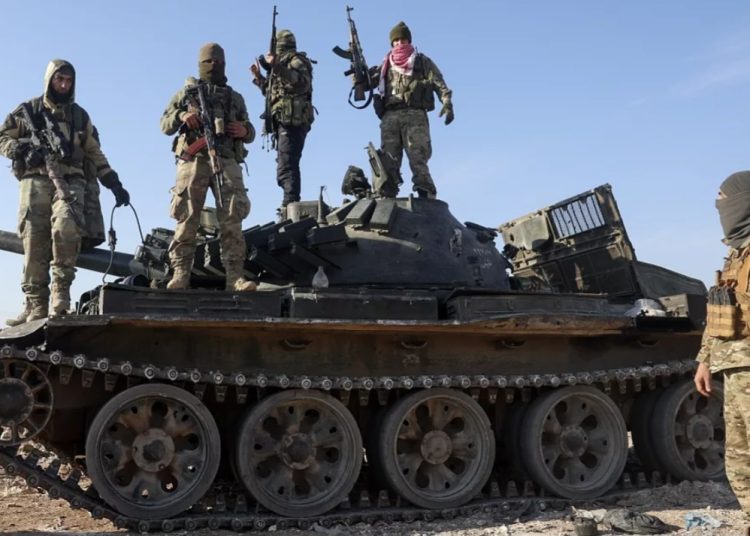Syrian rebels declared they had seized full control of the crucial city of Homs on Sunday morning after just one day of fighting, putting President Bashar al-Assad’s 24-year rule in jeopardy as insurgents advanced toward the capital, Damascus.
As the Syrian army withdrew from Homs, thousands of residents took to the streets, celebrating with chants of “Assad is gone, Homs is free” and tearing down posters of the president.
The fall of Homs not only gives rebels control over Syria’s strategic heartland but also disrupts the link between Damascus and the coastal region, a stronghold of Assad’s Alawite sect.
The capture of Homs marks a major turning point for the rebel movement, signaling a resurgence after years of heavy destruction during the civil war. Rebels also freed thousands of detainees from the city prison.
Hayat Tahrir al-Sham commander Abu Mohammed al-Golani called the victory historic, urging fighters to show mercy to those surrendering.
With Homs now under rebel control, the focus shifts to Damascus, where protests against Assad flared up. Rebel forces are making strides in surrounding areas, while the Syrian army is reinforcing positions around the capital. The fall of Homs and the rebel threat to Damascus pose a grave threat to Assad’s regime, prompting foreign officials to warn that the government might collapse soon.
The rapid developments have sent shockwaves through Arab capitals, raising fears of greater regional instability.
While several nations, including Qatar, Saudi Arabia, and Iran, have called for a political solution, the situation remains fluid.
The war in Syria, which began as an uprising in 2011, has drawn in major powers and created space for jihadist groups, complicating efforts for peace.
Despite the rebel momentum, concerns remain about the influence of Hayat Tahrir al-Sham, the strongest rebel faction, which has links to al-Qaeda and is feared for its potential to impose harsh Islamic rule.
International actors, including Russia, have played a significant role in supporting Assad, but their ability to continue doing so is strained by ongoing conflicts in Ukraine and Lebanon.
As the situation intensifies, the future of Assad’s rule hangs in the balance, with many wondering how much longer he can maintain control.













